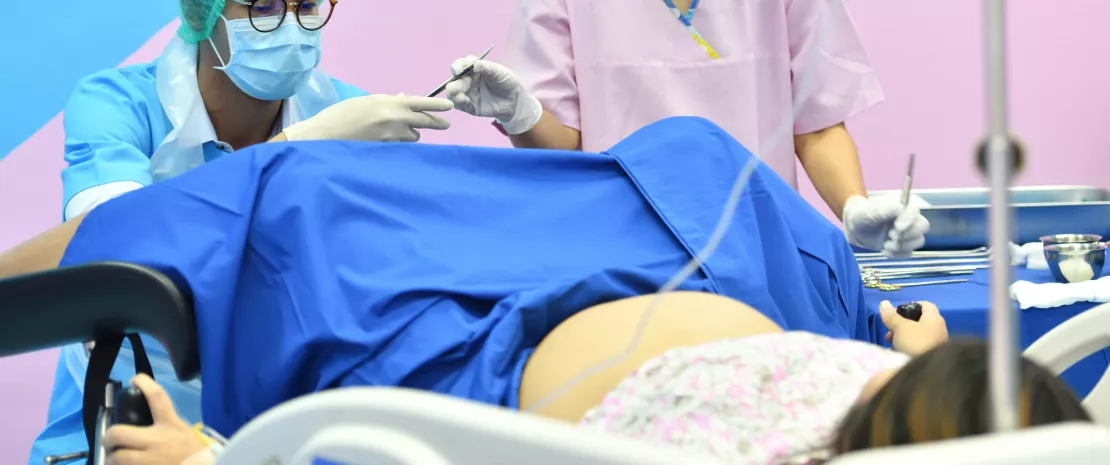Childhood immune system: the benefits of vaginal delivery
Vaginal delivery promotes the transmission of maternal microbiota, whose composition is involved in the development of newborns’ immune system, especially through the lipopolysaccharide biosynthesis pathway.
Sources
This article is based on scientific information

About this article
19.1% of deliveries worldwide are performed by C-section. This number rises to 25% in Europe and raises ethical questions since this delivery mode is frequently carried out for comfort rather than for medical reasons. We already know that the mode of delivery affects the composition of the gut microbiota in newborns, mainly through the potential contact with the vaginal, skin (and sometimes fecal) flora of the mother and through the use of antibiotics in case of C-section. Since the first days postpartum are a critical time window for the development of the neonatal immune system, an international team focused on the type of intestinal bacteria transmitted from mother to child according to the type of delivery. The team completed their analysis by studying bacterial genes and assessing their functions.
Vaginal delivery: stimulation of the LPS biosynthesis pathway
In this study performed on 33 newborns, the main finding was that children born vaginally had an overabundance of gram-negative bacteria (Bacteroides and Parabacteroides) that seemed to strengthen physiological functions. On the other hand, caesarean delivery promotes the contact of newborns with the mother’s cutaneous microorganisms and the transmission of Staphylococcus, which is found in higher levels in the stool of newborns born this way. Researchers explained that the abundance of this type of bacteria in newborns born vaginally could be related to an increased stimulation of the lipopolysaccharide (LPS) biosynthesis pathway (LPS are components of the external membrane of gram-negative bacteria), compared to newborns born by C-section. These LPS are endotoxins and promote the production of pro-inflammatory cytokines (TNF-a and IL-18) in plasma. These cytokines are found in higher levels in newborns born vaginally.
Immunostimulant potential confirmed in vitro
The extraction of LPS from the stools of newborns born vaginally or via C-section in order to stimulate in vitro primary human immune cells confirmed that C-section delivery is associated with lower production of TNF-a and IL-18. This confirms the lower immunostimulant potential of the gut microbiota of caesarean-born children who were not exposed to the mother’s vaginal bacteria, as well as the limited vertical transmission of some bacterial strains to newborns. This factor could have lifetime impacts in terms of increased risk of developing inflammatory, immune, metabolic disorders, and even chronic diseases. Nevertheless, these results need to be confirmed in larger cohorts with longer term follow-ups in order to better understand the effect of early microbial exposition on innate and adaptative immune responses.





